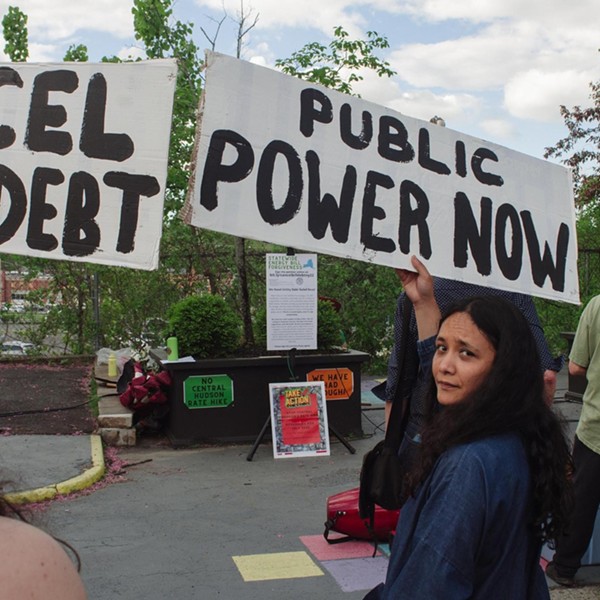The current debate about greenhouse emissions and global climate change is the ultimate déjà vu. It simply repeats most of what I learned almost 40 years ago in my high school environmental studies class. The need to recycle; create alternative fuel sources; purchase fuel efficient cars, water heaters, clothes dryers, and refrigerators; insulate homes, lower thermostats, don sweaters, and use solar technology—all of these topics and more were just as hot back then as they are today. The environmental awareness campaign of the early seventies inspired my purchase in 1975 of a Datsun B-210 Honeybee that got 41 miles per gallon on the highway.
Somewhere in between then and now a societal flip-off occurred that besides ridiculing Jimmy Carter, effaced the environmental movement and manifested such horrors as fuel-devouring SUV emission monsters and a host of products that exist in a constant state of on—whether they are being used or not. Agricultural lobbyists sold us on greenhouse gas-reducing farm-grown biofuels and shortly thereafter the production of these gasoline alternatives began driving global food prices up causing malnutrition, deforestation, and increases in greenhouse gas emissions.
In “Seven Myths About Alternative Energy,” Time magazine’s senior national correspondent, Michael Grunwald, unflinchingly addresses biofuels and other myths that have driven the environmental community in recent years. In a phone interview, Grunwald offered up a simple solution. “Reduce consumption. Americans in particular and people in general are extremely wasteful. In some ways that’s the good news. Because we’re so spectacularly wasteful that by just reducing just a little bit of that waste, we can reduce consumption a lot in gigantic ways that don’t require people to do anything, change their lifestyles, or suffer through the indignity of having to put on a sweater.”
“Mandates, incentives, and changing public and utility policies,” are the avenues to change, says Grunwald. For example, phasing out energy-wasting incandescent light bulbs and mandating their replacement by more efficient “twisty” light bulbs would not only reduce consumption, but also save people money. Instead of shutting down factories one day a week, motors that are twice as efficient and use half the energy to obtain the same product should be utilized.
Yet mandates have also created some problems. At a recent panel sponsored by the UN Millennium Campaign that discussed links between poverty and climate change, Indonesia’s environmental minister, Rachmat Witoelar, railed against the enormous pressure developed countries put upon developing countries to reduce emissions—despite the fact that developed countries are the worst offenders. As pointed out by Grunwald, in order to meet a European market that mandates biofuels usage, Indonesia destroyed huge tracts of thick forest and peat lands to grow palm oil. This caused Indonesia to rise from 21st to 3rd place on the ranking of the world’s top carbon emitters. “In all fairness to Witoelar,” says Grunwald, “the whole biofuel thing is still shockingly misunderstood because until two years ago the entire scientific and environmental community had it wrong too. They just didn’t understand the complex economic forces. I blame the Europeans for the biofuels mandate.”
Is it possible to get people to change? “Mostly I hear defeatism about the ability of Americans to change their energy consumption among coal executives and hardcore environmentalists. I’m not prone to big enthusiasms, particularly when it comes to human nature. But this is an actual emergency. So we have to act as if it were possible to get people to change, because I don’t really see another option. Do you?”
1. “We Need to Do Everything Possible to Promote Alternative Energy.”
Not exactly. It’s certainly clear that fossil fuels are mangling the climate and that the status quo is unsustainable. There is now a broad scientific consensus that the world needs to reduce greenhouse gas emissions more than 25 percent by 2020—and more than 80 percent by 2050. Even if the planet didn’t depend on it, breaking our addictions to oil and coal would also reduce global reliance on petrothugs and vulnerability to energy-price spikes.
But though the world should do everything sensible to promote alternative energy, there’s no point trying to do everything possible. There are financial, political, and technical pressures as well as time constraints that will force tough choices; solutions will need to achieve the biggest emissions reductions for the least money in the shortest time. Hydrogen cars, cold fusion, and other speculative technologies might sound cool, but they could divert valuable resources from ideas that are already achievable and cost-effective. It’s nice that someone managed to run his car on liposuction leftovers, but that doesn’t mean he needs to be subsidized.
















